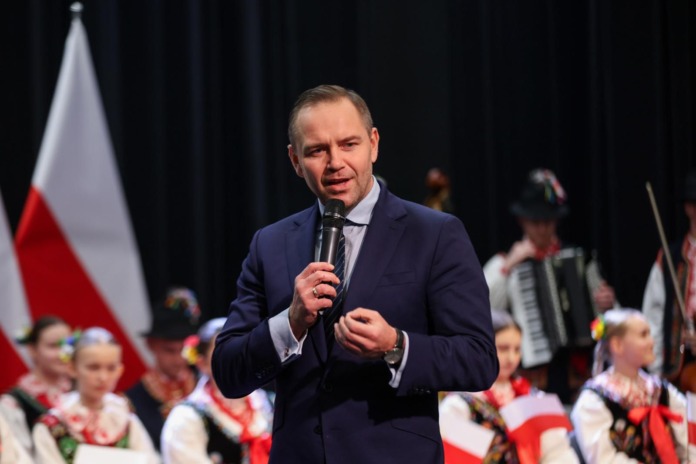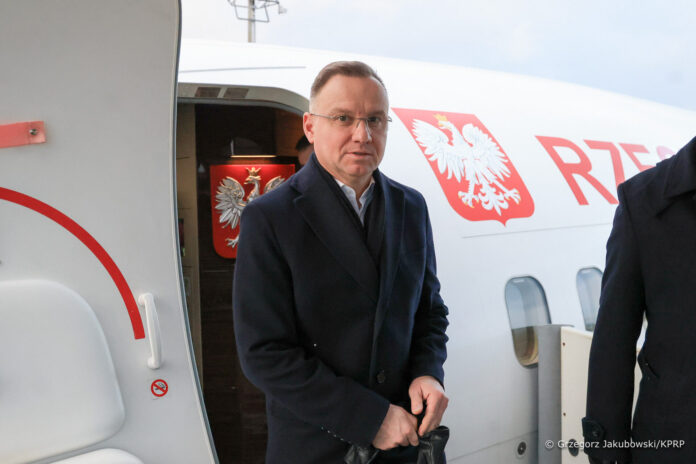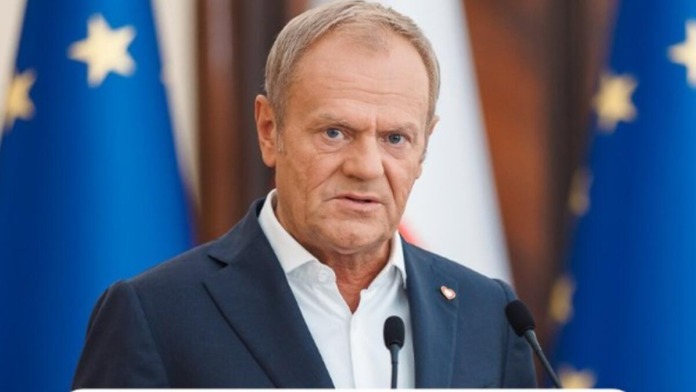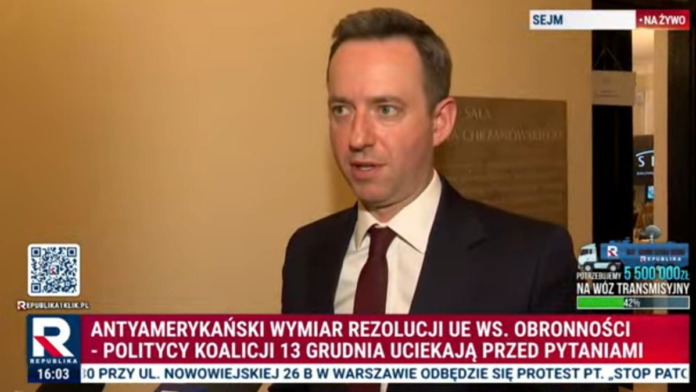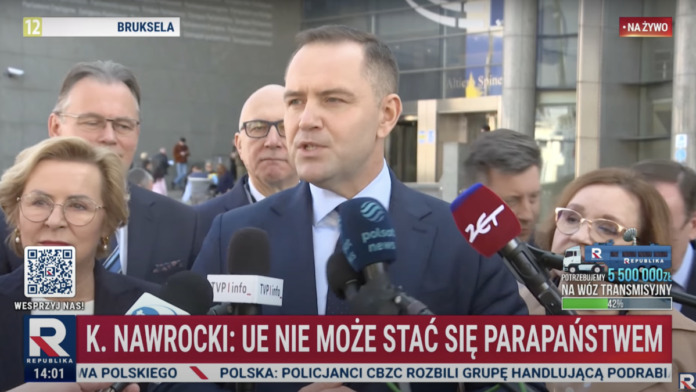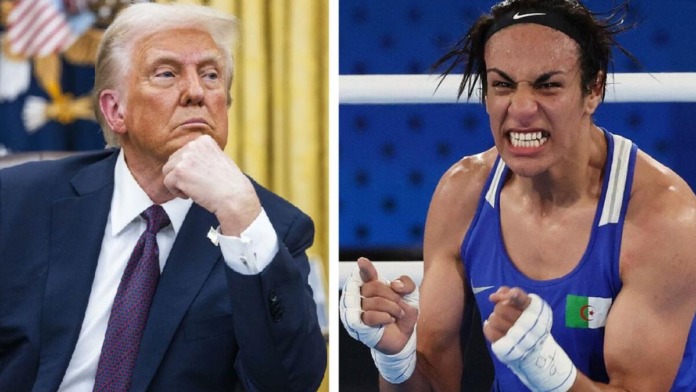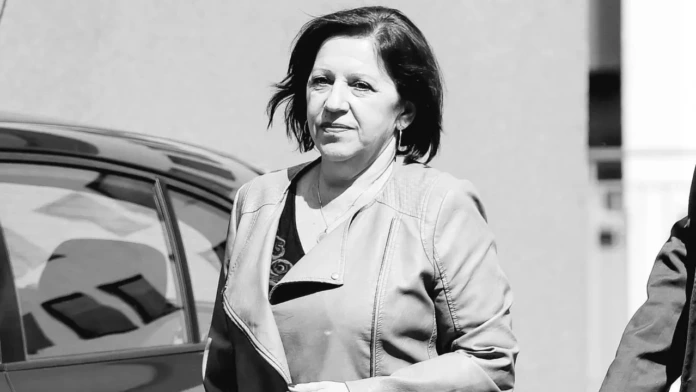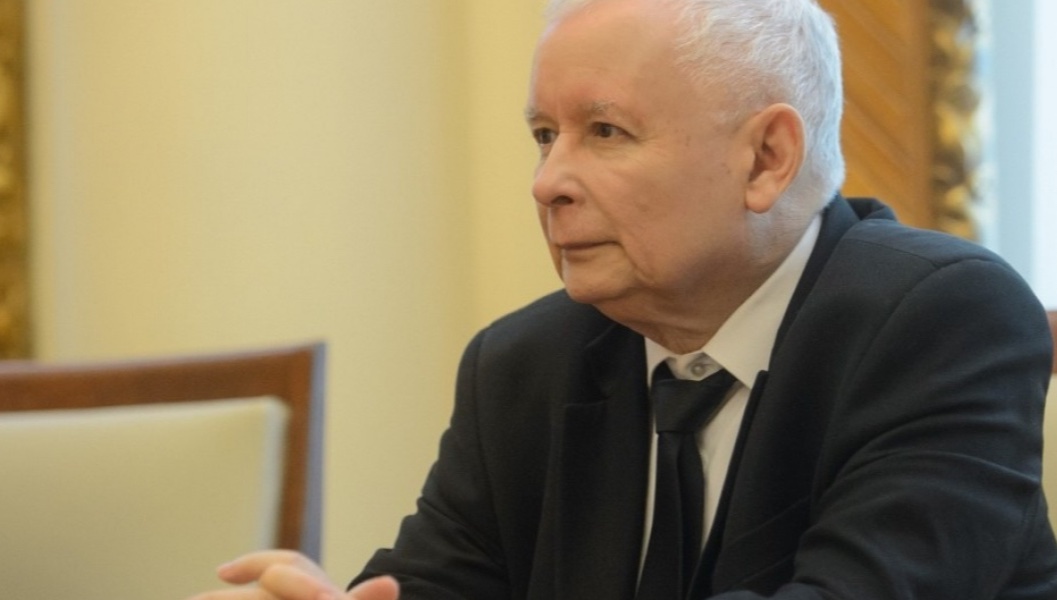Anti-American Tusk and Missed Opportunities. Nawrocki Criticizes the Government’s Policy and Points Out: This Is What Poland Needs
“I am deeply concerned that a U.S.-EU summit was not organized in Poland,” Karol Nawrocki said on TV Republika, indicating that the current Prime Minister is failing to take advantage of Poland’s EU Council Presidency. “With his anti-American attitude, Prime Minister Donald Tusk is not doing this, and that’s bad not only for Poland but for the entire EU,”
he stated.
Nawrocki also assured that the situation would change after he wins the presidential elections.
On Thursday morning, Karol Nawrocki, the PiS-backed presidential candidate, met with Italian Prime Minister Giorgia Meloni in Brussels. He reported that the conversation mainly concerned security. “Together, we will make Europe safe again,” he declared.
When asked about the meeting on TV Republika, Nawrocki emphasized that Giorgia Meloni is undoubtedly devoted to her homeland.
“She is someone in whom I see great hope. Once I become president, I believe she will help preserve the fabric and identity of the EU, maintaining common sense in Europe. Meloni, as we discussed today, shares many of the views I publicly express concerning peace, the centralization of the EU, and many other areas, including security. I think we have a strong basis for understanding.”
He added that in his discussion with the Italian Prime Minister, they talked about centralizing trends in the EU, as well as what is not being achieved during Poland’s current Presidency of the Council of the EU.
“As a presidential candidate, I am deeply concerned that we did not organize a U.S.-EU summit in Poland. Prime Minister Meloni has publicly spoken about wanting to host such a summit in Rome. This is of great interest to everyone who cares about the security not only of our countries but of the entire EU. That’s why, during our discussion, I referred to Giorgia Meloni’s plans to convene a summit.”
Tusk Fails to Seize the Moment
Nawrocki also recalled that President Andrzej Duda had originally proposed holding a U.S.-EU summit in Warsaw, and that the current situation presents a perfect opportunity.
“Donald Tusk, who is now prime minister, is not making use of this. Given the changes in the White House, in the context of trade and security, such a summit is essential. As a Pole, I would like it to be held in Poland. With his anti-American stance, Prime Minister Donald Tusk is not moving forward on this, and that’s detrimental not just to Poland but to the EU as well.
he assured.
Poland should be a leader in the EU when it comes to transatlantic relations, economic ties, trade, and security cooperation. That’s not happening. When I am president, I hope—in cooperation with Prime Minister Giorgia Meloni—that we will fix this,”
Giorgia Meloni is the leader of Brothers of Italy (Fratelli d’Italia), currently the largest party in the Italian Parliament, and she collaborates with Poland’s Law and Justice (PiS) party under the umbrella of the European Conservatives and Reformists (ECR) group in the European Parliament. PiS and Brothers of Italy are the two largest parties within this group. The ECR is chaired by Mateusz Morawiecki, who took over the position at the beginning of the year from Meloni.
The Presidential Couple Begins Their Visit to Hungary
President Andrzej Duda and First Lady Agata Kornhauser-Duda arrived in Hungary on Thursday afternoon. On Friday, together with the Hungarian presidential couple, they will take part in celebrations marking Polish-Hungarian Friendship Day.
The event alternates annually between Poland and Hungary; this year, it will be held in Kaposvár.
On Friday, the Polish presidential couple will be welcomed by Hungarian President Tamás Sulyok and his spouse, as well as the mayor of Kaposvár. Later in the morning, a private meeting between the two presidents is scheduled, followed by discussions between their delegations and statements to the media by Presidents Duda and Sulyok.
Both presidential couples will attend a gala ceremony in honor of Polish-Hungarian Friendship Day. Additionally, on Friday, the presidents of Poland and Hungary will take part in an awards presentation for the youth history competition titled “Poland and Hungary—A History of Friendship.”
The final item on the agenda will be a formal lunch in honor of Poland’s president and first lady.
A declaration establishing March 23 as Friendship Day for both nations was adopted on March 12, 2007, by the Hungarian parliament. A few days later, a similar resolution was passed by the Polish Sejm.
Last year, the presidents of Poland and Hungary met in Stary Sącz, Poland, to mark the occasion there.
“Tusk has postponed the realization of Poland’s nuclear program.” Did the German daily really write what’s happening?
“Poland plans gigantic investments in the energy sector” reads the headline of an article by foreign correspondent Gabriele Lesser.
At the outset, we learn that such an ambitious modernization of the energy infrastructure was made possible by the change in government, which “unlocked funds from the Recovery Fund that had previously been blocked.”
“The national populists from the Law and Justice (PiS) party, who earlier governed the country for eight years, reorganized Poland’s legal system to their own advantage. They repeatedly described EU law as ‘unconstitutional’ and often ignored rulings by the European Court of Justice. Eventually, Brussels lost patience, and the EU halted the large-scale flow of money to Poland,” Lesser writes bluntly.
The author admits that Tusk “inherited certain investments from the PiS government that can no longer be reversed.” She lists two: “in addition to the large airport between Warsaw and Łódź, there is also the move into nuclear energy.”
Regarding the construction of the first nuclear power plant in Choczewo, the article states:
“The investor Polskie Elektrownie Jądrowe (PEJ) received approval for public funding equivalent to 14.5 billion euros. However, that amounts to barely one-third of the investment’s total estimated cost of 47 billion euros.”
Despite agreements between PEJ and the American contractor, TAZ reports that “the Westinghouse consortium, which is supposed to supply the AP1000 reactor and build it together with the American company Bechtel, has never shown genuine interest in this project.”
And that’s not all. Lesser speculates that “the private expansion of photovoltaic systems and the planned offshore wind farms may render the costly construction of nuclear power plants unnecessary.”
“No government politician admits this openly, but in a few years it will become clearer how expensive nuclear energy is compared to green energy from wind and solar,” the article concludes.
Marcin Ociepa on the Sejm Resolution: The European Union Threatens Poland
The Sejm has passed a resolution supporting the European Parliament’s motion, including the “Shield East” project, which, according to Marcin Ociepa, is yet another step toward weakening Poland’s sovereignty in defense matters. The former Deputy Minister of National Defense, speaking live on Telewizja Republika, harshly criticized Brussels’ actions. Instead of strengthening the security of member states, the EU is engaging in a dangerous game aimed at pushing the Americans out of Europe.
The European Union Wants to Take Over Our Defense
Marcin Ociepa has no doubts that “Shield East” is merely a pretext to weaken NATO and strengthen the EU’s role as the primary player in defense matters, despite lacking the necessary resources.
In his view, the entire initiative is an ideological experiment by Eurocrats who seek to remove the United States from Europe and take full control over the defense policies of member states.
“This is not about duplicating alliances; this is a deliberate effort to push the Americans out of Europe. The EU wants to take over our security, but it has neither the resources nor the capability to do so,” Ociepa stated.
Brussels Lacks Defense Capabilities
Ociepa pointed out that the European Union has no real defense capabilities and that all the proposals in the resolution are nothing more than empty declarations. He emphasized that none of the decisions address the issue of funding, and the talk of loans is simply “empty rhetoric with no real backing.”
“The EU wants to take over defense, but it has no money for it. These are just ideological fantasies that could cost us more than we expect,” he added.
In his opinion, the EU’s actions in this area are a step toward dismantling NATO—an extremely reckless and harmful move given the threats posed by Russian aggression.
“NATO is the only proven defense alliance. The EU’s attempt to replace it is a dangerous game that could put us at greater risk,” Ociepa concluded.
An Uncertain Future: The EU Offers No Guarantees
Marcin Ociepa also pointed out that the European Parliament’s resolution contains no concrete financial commitments, making it, in his view, merely an ideological declaration with no real impact on security.
“If the EU wants to allocate funds for defense, it doesn’t need to duplicate NATO. The money must come from real sources, not loans. What the Eurocrats are proposing is not a plan for the future—it’s an attempt to weaken nation-states and transfer competencies to Brussels, which lacks the capability for effective defense,” Ociepa stated, warning of the dangerous direction the EU is heading in.
Nawrocki Spoke with Meloni Today: “We Are Concerned”
“The most important topics in my conversation with Prime Minister Meloni were centralization and security. As a Pole and a candidate for the office of President of Poland, I would very much like Poland to take the lead in EU-US relations,” said Karol Nawrocki, the civic candidate for the Polish presidency, following his discussion with Giorgia Meloni.
Nawrocki-Meloni Talks
This morning, Dr. Karol Nawrocki, the civic candidate for the Polish presidency supported by PiS, held a conversation with Italian Prime Minister Giorgia Meloni, the former chair of the European Conservatives and Reformists (ECR).
The discussion was dominated by the issue of Europe’s security. We were the first to report that Nawrocki called for an EU-US summit. It is worth noting that Prime Minister Meloni was the first to propose such a summit, even though Poland currently holds the presidency of the Council of the European Union. However, Donald Tusk has failed to take advantage of this position, instead handing over leadership to other EU countries.
What Was Discussed?
During a press briefing in Brussels, Karol Nawrocki shared details of his morning discussions. The presidential candidate spoke not only with Prime Minister Meloni.
“I had the pleasure of participating in the ECR summit. As part of this summit, I met with three prime ministers from ECR-affiliated countries—those of the Czech Republic, Belgium, and, most importantly, Italy. My conversation with Prime Minister Giorgia Meloni was the longest. The issues we discussed involved the concerning centralization tendencies within the European Union, which go against the treaties and worry both Poles and Italians,” he stated.
He also emphasized that European security was a key topic in the conversation.
“We are living in a time of geopolitical turbulence in global politics and security—on one hand, due to China’s economic pressure, and on the other, because of Russia’s aggressive stance. And, of course, there is the ongoing war in Ukraine. The most important topics in my discussion with Prime Minister Meloni were centralization and security. As a Pole and a candidate for the office of President of Poland, I would very much like Poland to take the lead in EU-US relations,” he declared.
Paweł Kukiz reacts strongly to the death of Barbara Skrzypek
Paweł Kukiz responded sharply and emotionally to the death of Barbara Skrzypek and the interrogation that preceded it. The opposition MP referred, among other things, to prosecutor Wrzosek’s infamous remark that “revenge is best served cold.”
“In the case of the late Barbara Skrzypek… Mrs. Basia… A warm, kind-hearted woman, a good person… First and foremost, my deepest condolences to the family… The prosecution has already announced that her family will also be interrogated…,” Kukiz wrote on his social media profile. In the rest of his post, he directed a rather unusual “proposal” to Tusk. But was this proposal really so unusual, given “our prime minister’s” track record?
“I propose, Mr. @donaldtusk, that the ABW carry out arrests during the funeral ceremony. In front of the cameras of TVN24 and TVP Info. Then straight to Białołęka (with cameras) and on to Radom. Of course, no legal representation or recordings of interrogations. Judges should be handpicked from Iustitia, and as for the prosecutor—well, obviously, Wrzosek. The detainees should be held until the first frost. After all, revenge is best served cold…,” wrote Paweł Kukiz.
W sprawie ś.p. Barbary Skrzypek… Pani Basi… Ciepłej, życzliwej ludziom kobiety, dobrego Człowieka…
— Paweł Kukiz (@pkukiz) March 17, 2025
Przede wszystkim wyrazy szczerego współczucia dla Rodziny…
Prokuratura już teraz zapowiedziała, że Jej rodzina również będzie przesłuchiwana….
Proponuję, panie @donaldtusk ,…
Imane Khelif Sets Sights on the Los Angeles Olympics, Dismisses Trump
Imane Khelif, the Algerian boxer who sparked significant controversy during the recent Paris Olympics, plans to participate in the upcoming 2028 Los Angeles Games. This decision comes amid escalating U.S. policies on transgender athletes, led by President Donald Trump.
Khelif secured a gold medal in Paris, despite her prior disqualification from the 2023 IBA World Championships over gender eligibility concerns. The IBA claimed that certain athletes attempted to deceive by presenting as women, citing the presence of XY chromosomes.
Although Khelif was not found to be transgender, the Algerian Olympic Committee cited “medical reasons” for her exclusion, with local media reporting elevated testosterone levels. Khelif herself claimed to be the victim of a “conspiracy.”
Her participation in Paris drew criticism from figures like Trump, Elon Musk, and J.K. Rowling. In response, Khelif filed a cyberbullying lawsuit in France against these individuals.
In an exclusive interview with ITV, Khelif addressed Trump’s policies, stating: “I am not transgender. This does not concern me, and it does not intimidate me.” She added that she considers herself a woman, has lived her entire life as a woman, and has nothing to hide.
The future of the IOC’s policies on gender eligibility remains uncertain, especially with the impending end of Thomas Bach’s presidency and potential successors like Sebastian Coe, who emphasizes the importance of protecting female athletes.
Tomasz Sakiewicz in Gazeta Polska: “They Cannot Govern Without Victims”
For many months, I have been warning that the increasing repression by the government would lead to the deaths of people whom this authority persecutes or intends to use for persecution. The death of a soldier at the border is the result of an earlier campaign against border defenders. They were given poor orders, and were ill-prepared for this role, but above all, they were aware of the repression faced by those who tried to effectively defend our country—writes Tomasz Sakiewicz in Gazeta Polska.
A young farmer, who was arrested by the police after a demonstration in March of last year, committed suicide. He could not cope with the stress caused by his detention.
The death of Barbara Skrzypek, however, marks the crossing of yet another line. Her interrogation was coldly planned in a way that exerted maximum pressure on her. During the questioning, she was deprived of the right to have her legal representative present. Meanwhile, the interrogation was attended by the legal representatives of an individual who is determined to extract money from the Srebrna company. The most scandalous aspect of this case is that it was led by Ewa Wrzosek—a prosecutor known as a staunch supporter of the current government. She was recorded attempting to obtain incriminating materials against the Warsaw city authorities following a disaster caused by a driver under the influence of drugs. Under Tusk’s government, she was given a position in the Ministry of Justice. She publicly promoted Roman Giertych as the head of this ministry, which led to her removal from the institution by the current minister. And yet, it was she who allowed Giertych’s law firm to participate in the interrogation related to the case that ended with Barbara Skrzypek’s death.
The entire interrogation was orchestrated to break the person being questioned. It was hard not to anticipate that it could end this way.
During Tusk’s first term, we had the Smolensk tragedy and a series of suspicious suicides. These cases were never fully investigated. Now, the repression is being carried out openly for everyone to see. The methods change, but the objectives and consequences of his administration’s actions remain the same.
To the family of the late Barbara Skrzypek and all her loved ones, I extend my deepest condolences. May the good Lord grant her peace and eternal life.
Bodnar’s Officers in Majdzik’s Home. PiS Leader: They Want to Cover Up the Case of the Late Barbara Skrzypek’s Death
On Wednesday morning, the police raided the home of anti-communist opposition activist Ryszard Majdzik. The alleged reason for the operation was the search for illegal firearms.
Shortly after the police action, Majdzik appeared on TV Republika. He stated that he had not signed any document presented to him by the officers. Referring to the legal article cited in the search warrant, he pointed out that his father, a soldier of the Home Army, had also been arrested for the alleged illegal possession of firearms.
Read more: Bodnar’s Officers in Majdzik’s Home. PiS Leader: They Want to Cover Up the Case of the Late Barbara Skrzypek’s Death- Police at Ryszard Majdzik’s Home: ‘They Raided My Apartment as in Martial Law’
- Morning Search at Majdzik’s Home: “I’m Not Afraid!”
Commentary from the PiS Leader: “Political Theater”
Law and Justice (PiS) party leader Jarosław Kaczyński commented on the police raid at Ryszard Majdzik’s home.
“Mr. Majdzik was an opposition activist under the Polish People’s Republic and remains one today—an energetic and courageous one. The claim that he might have weapons was merely a pretext because it is obviously just that—a pretext. The real goal was to stage another act in this political theatre,”
he asserted.
He further stated that “most likely, this was indeed an attempt to cover up the highly embarrassing case surrounding the death of the late Barbara Skrzypek, and this is simply the modus operandi of this government.”

